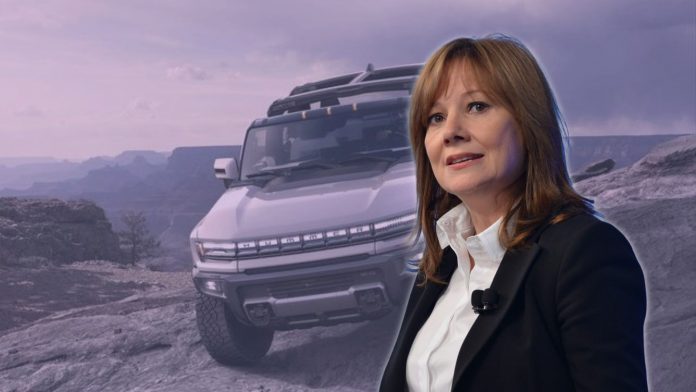In the year’s second half, General Motors promises to accelerate the production of its more recent electric vehicles as it seeks to obtain more battery modules required to produce those vehicles.
Although GM said its order banks were full, the GMC Hummer EV truck, SUV, and Cadillac Lyriqs have gradually left its production plants. All of these vehicles feature GM’s innovative Ultium propulsion technology.
49 Hummer EV pickups, produced at Factory Zero, situated on the border of Detroit and Hamtramck, were supplied by GM for the first half of this year. This is fewer than the 371 Hummer pickups delivered in the first half 2022.
Additionally, in the first half, GM delivered 2,316 Lyriqs. The Lyriq is intended to be a more significant volume vehicle because it’s starting price of $61,795 is lower than the 2023 Hummer’s $98,400 starting price. The Lyriq is assembled in Tennessee at the Spring Hill Assembly factory.
On July 17, GM President of North America Rory Harvey told the media at the Lansing unveiling of the 2024 Chevrolet Traverse that GM is “up to speed on battery capacity and building momentum, and I anticipate a lot more EVs being built in the second half of this year than the first half.”
A GM employee said, “We’ve had supply issues… when you order one part, a different one is suddenly required.” But, Harvey admitted to a slow ramp-up of Lyriq and Hummer but cites the availability of battery modules as the only supply part issue. The Ultium Cells LLC battery plant in northeast Ohio, which GM launched as a joint venture with LG Energy Solution, provides GM with the battery cells.
Barra confirmed the battery supply was an issue in the slow EV rollout in June. We are ramping up, but there are some growing pains because you must construct the car battery pack and put cells in modules. It’s new manufacturing. We’re working with different suppliers, and I have people in suppliers trying to get it up and running.
According to Barra, logistics have been another issue GM has dealt with. A lack of railcars affects the entire industry since approximately 70,000 newly constructed vehicles are waiting to be transported from factories to dealerships. According to Chevrolet Vice President Scott Bell, it continues to be the most prominent problem.




